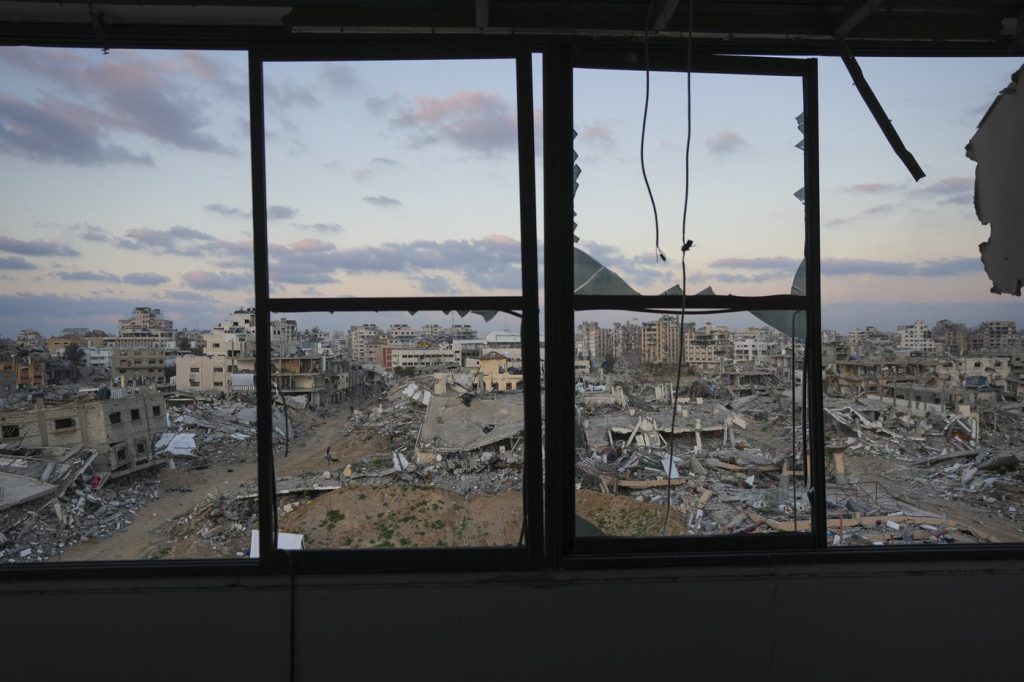As Palestinians commemorate the 77th anniversary of their mass expulsion from what is now Israel, an event known as the Nakba, they face an even more devastating crisis in the Gaza Strip. Following President Donald Trump's suggestion that displaced Palestinians in Gaza be permanently resettled outside the territory, concerns about their future have intensified. The Nakba, which means "catastrophe" in Arabic, refers to the 1948 expulsion of around 700,000 Palestinians during the Arab-Israeli war that ensued after Israel's establishment. Currently, the Palestinian refugee population has reached approximately 6 million, many of whom reside in impoverished camps in Lebanon, Syria, Jordan, and the West Bank, with the majority of Gaza's inhabitants also being refugees or their descendants.
The issue of the right of return for Palestinian refugees remains contentious. After the 1948 war, Israel denied their return to avoid a Palestinian majority within its borders, leading to a longstanding grievance among Palestinians. The recent war in Gaza, which erupted after Hamas' attack on Israel on October 7, has resulted in catastrophic levels of violence and displacement. Local health officials report that over 47,000 Palestinians have been killed, marking this conflict as the deadliest in the historical ongoing violence between Israelis and Palestinians.
During the war, around 1.7 million Palestinians, or three-quarters of the Gaza population, have been forced to evacuate their homes, a stark contrast to the earlier displacements of 1948. Many Palestinians are now retracing their steps back to destroyed neighborhoods, evoking harrowing memories of their earlier exodus. Declared a great-grandfather, Mustafa al-Gazzar, reflected on his family's extensive flight in 1948, noting that the conditions today are far worse than those endured during the Nakba when the U.N. refugee agency provided regular assistance.
Israeli authorities have closed borders to refugees, exacerbating fears of another mass exodus. While Egypt has permitted a limited number of Palestinians to exit, the concern is that a sudden influx could lead to a prolonged refugee crisis. The international community is largely opposed to the forcible expulsion of Gazans, a notion supported by far-right factions in the Israeli government who frame it as "voluntary emigration."
Historically, Israel has advocated for the absorption of 1948 refugees into host nations, citing the inflow of Jewish immigrants from Arab countries post-1948. Many Israelis argue that a return of Palestinian refugees would threaten Israel's identity as a Jewish state. Nevertheless, fears persist that even if mass expulsions do not occur, the destruction of Gaza and ongoing military operations may make return impossible. A forecast suggests it could take until 2040 to rebuild the extensive damage wrought by the current conflict.
The ongoing violence has led many Palestinian advocates to characterize their struggle as an unbroken Nakba, emphasizing the effects of land expropriation, home demolitions, and settlement expansions in the West Bank, East Jerusalem, and Gaza. They argue that these actions have created an ongoing atmosphere of displacement, with many claiming that the terminology surrounding these events may shift. According to Yara Asi, an assistant professor and researcher focused on civilian infrastructure damage in the conflict, a comprehensive plan to rebuild Gaza seems implausible in the current climate.
Amid shifting political landscapes and repeated conflicts, the looming threat of continued dispossession shapes Palestinian identity and resilience. As they navigate through this new chapter of displacement in Gaza, many Palestinians remain hopeful for survival, even as histories of loss loom large in their collective consciousness.










